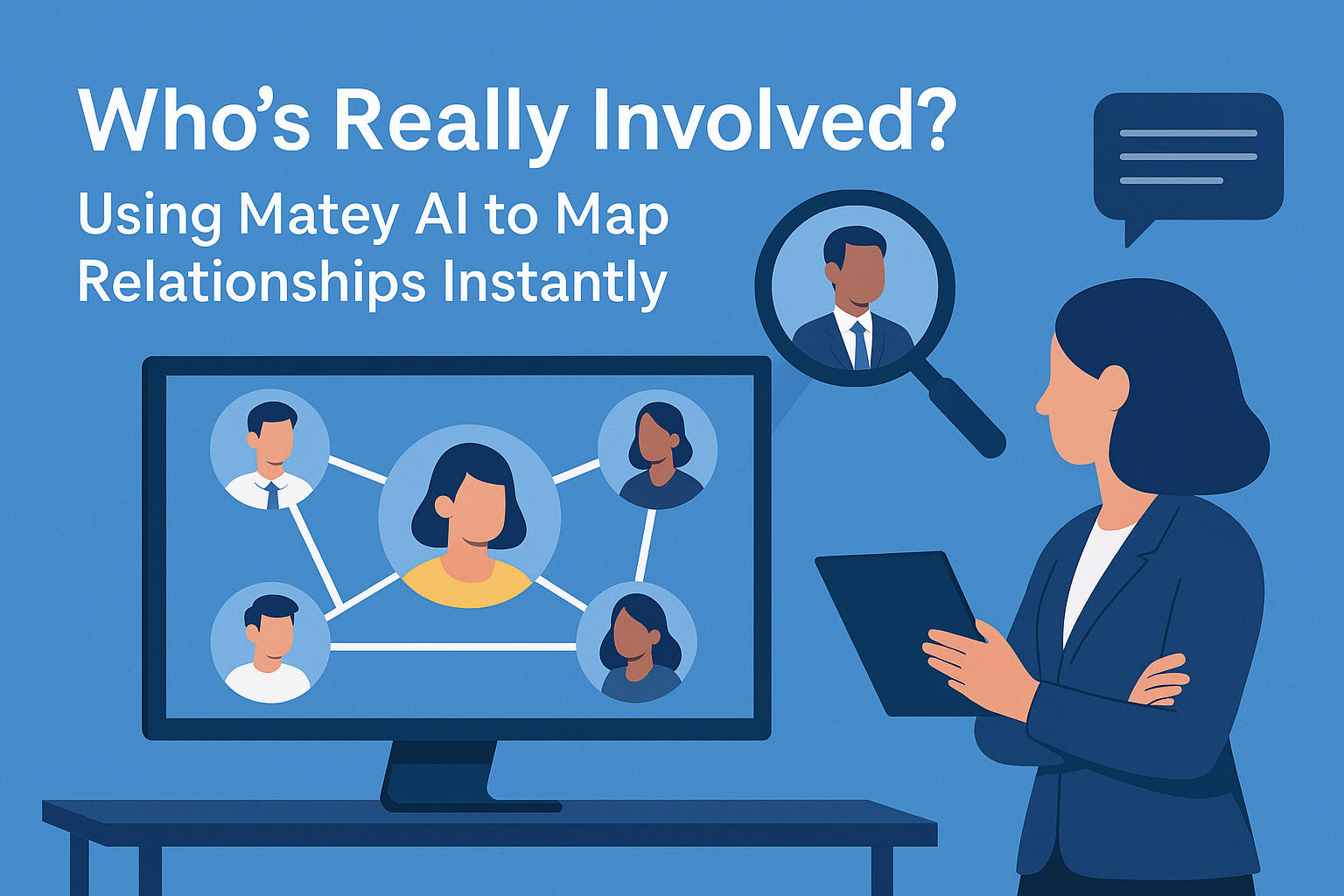Matey Video Demo - DUI Case with Voiceover
The video is a quick demonstration of Matey, showcasing how attorneys can review evidence, such as in a DUI case, in minutes.

Legacy eDiscovery tools only show surface-level communication patterns. Matey AI goes deeper - mapping relationships with context, influence, and relevance. It identifies hidden players, explains how people are connected, and delivers evidence-cited answers in real time, ensuring no one slips through the cracks.
Most eDiscovery platforms:
This leads to missed opportunities in fraud, conspiracy, and compliance cases.
Matey AI turns static visuals into actionable intelligence by:
In a whistleblower-driven case:
Legal outcomes often hinge on:
Matey AI ensures full visibility, helping defense teams, investigators, and compliance officers adjust case strategy early—before crucial actors slip through unnoticed.
Legacy visualizations stop at “dots and lines.” Matey AI delivers true understanding of relationships - real-time, contextual, and evidence-backed. For legal teams under pressure, that clarity isn’t optional. It’s the difference between chasing fragments and uncovering the whole story.
What’s wrong with legacy social network analysis?
It only shows frequency of communication, not the meaning or influence behind relationships.
How does Matey AI add context to connections?
Through entity extraction, timeline building, and natural language queries tied directly to evidence.
Can Matey find hidden players?
Yes. Even individuals outside the initial scope surface when they’re linked to key events or communications.
Does Matey only work with emails?
No. It analyzes audio, video, PDFs, chats, and other digital records.
What’s the main benefit for investigators?
Faster, deeper insight into who matters most - reducing guesswork and uncovering truth in minutes.